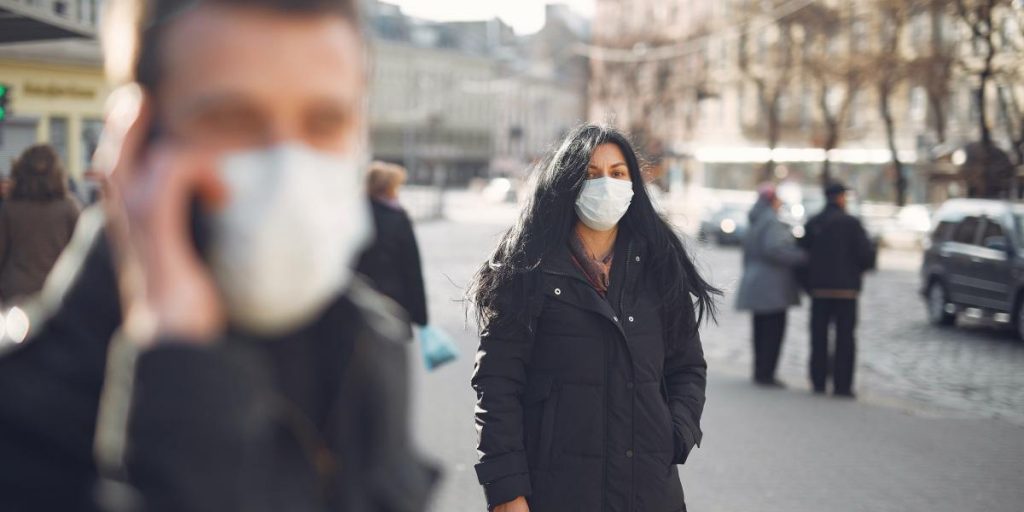We’re still not very sure how covid-19 immunity works. As we inch closer to a vaccine and pin our hopes on herd immunity to allow us to safely open up communities again, the uncertainties will only get more pressing. Here’s a look at some of the biggest questions we’re still trying to answer.
How much immunity are we talking about? When most people (i.e., the general public) talk about immunity, what they mean is protection from a disease. But for many infectious diseases, “immune” and “not immune” are more a gradient than a binary. Tulane University virologist Robert Garry points out that the flu vaccine, for instance, doesn’t give absolute protection against influenza, but rather is designed to prevent a significant infection and keep things “from falling off a cliff.”
When we talk about immunity against covid-19, we’re mostly referring to the production of antibodies by our body’s immune system. But this is also misleading. A preprint study uploaded this month, which measured antibody levels in patients in London, found that between 2% and 8.5% didn’t even develop detectable antibodies. Those in this group who survived infection (typically younger people) likely had to fight off infection through cell-mediated arms of the immune system—white blood cells and cytokines that directly engage and kill pathogens—rather than through antibodies that neutralize the virus.
How long does immunity to covid-19 last after infection? We really have no idea yet. There have been sporadic reports of some people in the world coming down with covid-19 twice, and so far it’s unclear why. It’s well documented that other coronavirus infections confer only temporary immunity, sometimes lasting no more than a few months. Covid-19 may follow the same pattern, but it’s too early to tell.
What factors affect immunity? As Sarah Fortune at the Harvard T.H. Chan School of Public Health points out, it’s already well known that immunity from an infectious disease is tied to the strength and durability of the immune response during infection. An infection that causes severe symptoms is likely to lead to a stronger immune response, which would also help encourage strong and longer-lasting immunity moving forward. On the flip side, a mild or asymptomatic case is likely to yield lower antibody levels, as was found in covid-19 patients in a new study published in Nature Medicine on Thursday.
In the study, researchers studied a small cohort of asymptomatic patients with covid-19 and found that they seemed to develop lower antibody levels. On the surface, this might suggest these people are not as immune to covid; but Fortune points out that you can’t draw those kinds of conclusions yet—it might be the case that those lower levels of antibodies will still protect you from getting sick, as a new paper in Nature suggests.
We’re still not totally clear how asymptomatic cases and symptomatic cases differ in terms of immunity, since the asymptomatic cases aren’t being actively tested and identified. Nor is there a universal definition for what qualifies as asymptomatic. Is it the total absence of symptoms? What about just moderate ones?
Other research has demonstrated that “those who have inflammation mount an immune response that’s more detectable and potentially more robust,” adds Charles Cairns, the dean of Drexel University College of Medicine. All of this growing evidence might underscore the importance of a cell-mediated immune response for fighting coronavirus.
What does this mean for developing a vaccine? At the risk of sounding like a broken record: we don’t know yet. As mentioned, we’re still not sure what kind of covid-19 immunity we will get from a vaccination: total, or just protection from the worst symptoms. Fortune says that for covid, we’re likely to get true protection, but we don’t know for sure—and it’s not something that we can just assess from antibody levels. It won’t be until phase III trials (which will directly measure the vaccine’s efficacy) that we’ll have a better sense of what the relationship between antibody levels and immunity is, and what sort of immune response a vaccine needs to elicit to provide true protection.
If it turns out pre-exposure to covid-19 doesn’t guarantee permanent or strong immunity, nearly everyone would be recommended for vaccination. And clinical trials for studying the safety and efficacy of the vaccine would then need to include people from this previously infected population.
